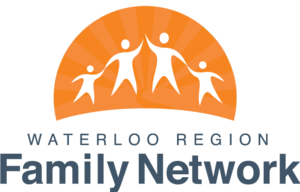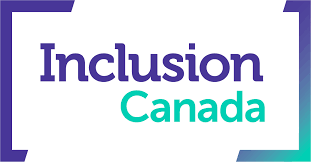
We collect basic website visitor information on this website and store it in cookies. We also utilize Google Analytics to track page view information to assist us in improving our website.
From time to time, the Waterloo Region Family Network (WRFN) is asked to distribute information on behalf of third parties. WRFN provides general information to self-advocates and families of children with special needs. The information provided on this website is not a recommendation, referral or endorsement of any resource, therapeutic method, or service provider. WRFN is not responsible for any information or services provided by third parties. You are urged to use independent judgment when considering any resource.

Canada Disability Benefit (CDB) Update
On June 28, the federal government released the draft CDB regulations. The public now has until September 23 to provide their feedback. Inclusion Canada is actively analyzing the draft version and will be submitting our feedback. These regulations are the rules that will be implemented regarding who can qualify for the benefit, what the application process looks like, and other important eligibility requirements. There is much we disagree with.
You can read the regulations here.
In the coming weeks, we will be providing some useful tips on how you can submit your own feedback. In the meantime, the most helpful thing you can do is contact your provincial or territorial government and tell them not to reduce or clawback the benefit from existing provincial/territorial government disability supports.
Our friends at Maytree have developed an excellent tool with lots of resources you can access to help you advocate, including draft template letters you can use to send to your provincial/territorial governments.
Access the tool here.
Meaningful Participation: What it is, and who it's for
Last fall, Inclusion Canada's Senior Policy Analyst, Rachel Mills, hosted a series of conversations with people with intellectual disabilities and their families about how the government of Canada can make their communication more accessible. The resulting conversations were fruitful and provided important insight into what meaningful participation looks like for someone with an intellectual disability and/or their family members.
In this blog post, we explore the topics discussed during these conversations and offer some lessons that can help break down communication barriers.
Partial Day Attendance in Canadian Schools: and Inclusive Education Canada Survey
Inclusive Education Canada is conducting a survey on partial day school attendance and the experience of parents with this practice.
The survey is still open for another few weeks and is an opportunity to provide us with your experiences. We are looking to have every region of the country represented in this survey. If you live in Newfoundland and Labrador or Nunavut, we'd particularly love to have you included in our data.
If you and your child have encountered partial day school attendance, we would really appreciate a few minutes of your time to provide your feedback.
Click here to access the survey.
What are the Sustainable Development Goals and what do they have to do with Disability in Canada?
More than 20 years ago, the United Nations brought together leaders from 189 countries. They decided to work together to tackle difficult issues, such as poverty and hunger. They set progress goals to accomplish by 2015. When 2015 came around and more work was necessary, they created the Sustainable Development Goals which would be worked towards and re-assessed in 2030.
Disability is mentioned 11 times in the Goals. As the 2030 deadline approaches, Inclusion Canada has revisited these goals and offered recommendations for future work, as well as explored the impact of these goals on people with an intellectual disability and their families.